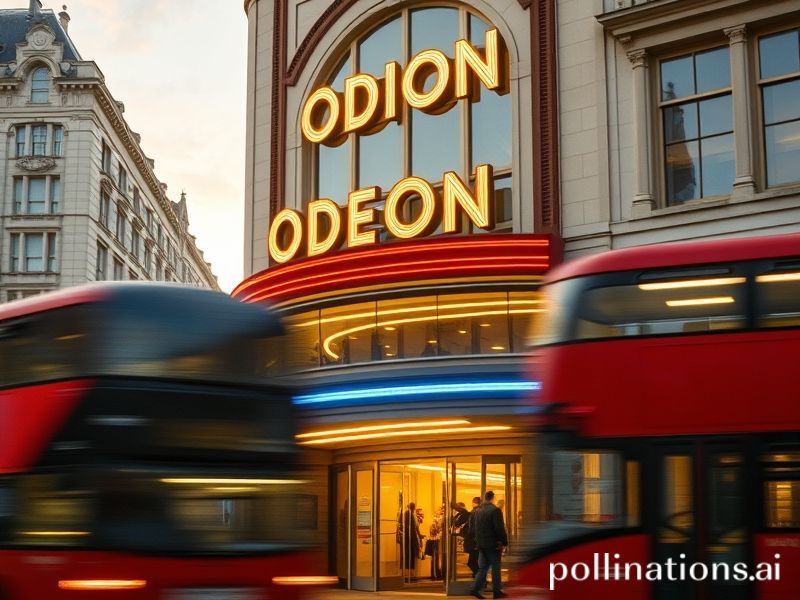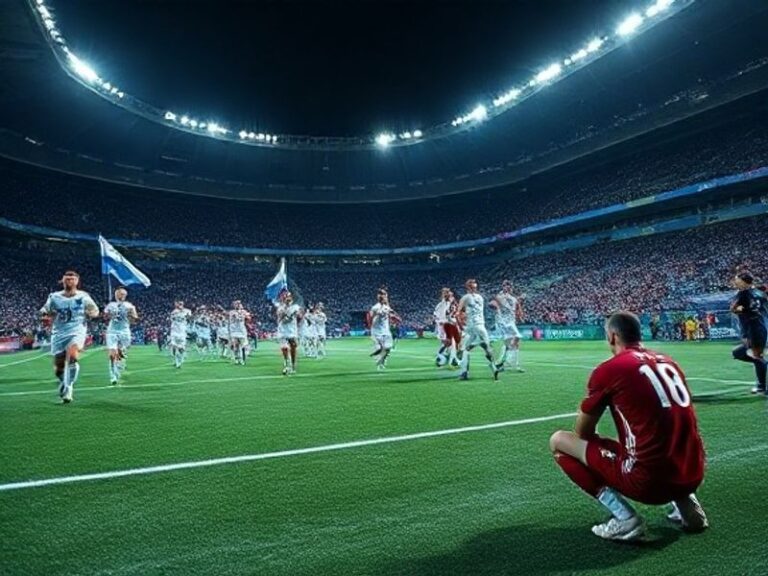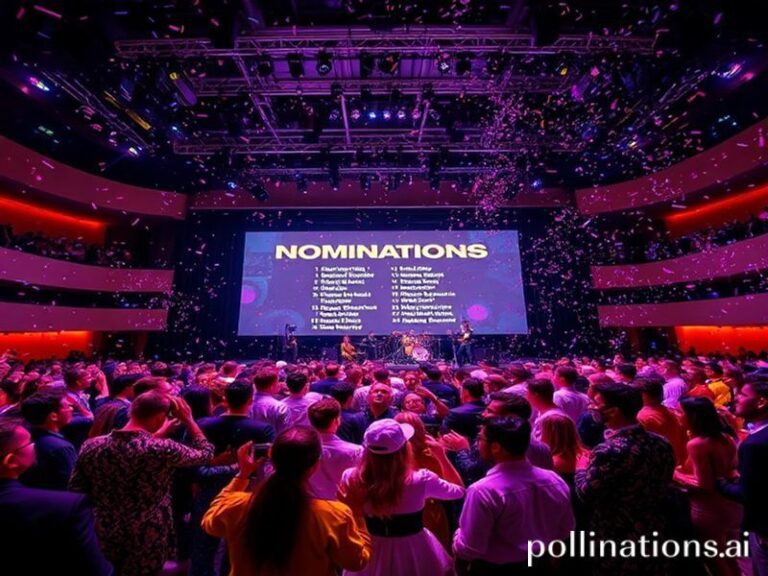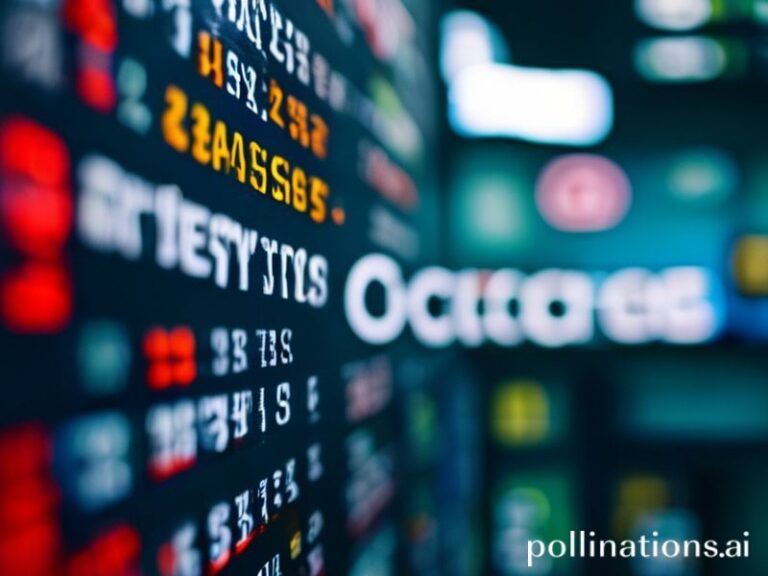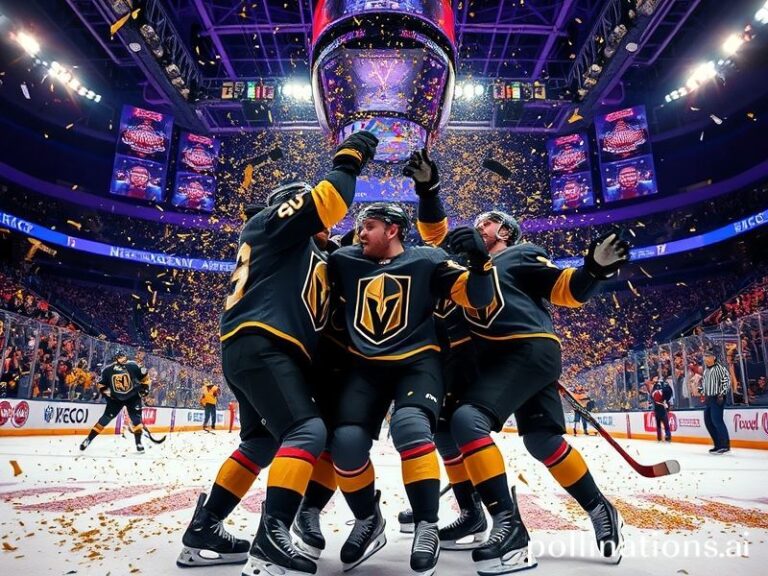ODEON: How the World’s Loudest Love Letter to Escapism Survived Empires, Pandemics, and Netflix
ODEON: How a Greek Word for Singing Became the World’s Loudest Love Letter to Escapism
By the time you finish this sentence, roughly 3,200 people in 31 countries will have swiped their credit cards at an Odeon-branded box office to watch something explode in Dolby Atmos. From Oslo to Mumbai, the name—“singing place,” courtesy of ancient Athens—has been repurposed to sell popcorn in vats the size of sarcophagi. The global footprint is almost indecent: 360 cinemas, 2,900 screens, one corporate parent (AMC) that itself is majority-owned by a Chinese conglomerate whose chairman once compared the company’s debt load to “a small country’s GDP.” If that doesn’t make you hum the Imperial March under your breath, congratulations—you still have a soul.
The international significance of Odeon begins with geography. It sits at the crossroads of empire and irony: born in the English Midlands in 1930, swallowed by a Kansas-based chain in 2016, bailed out by a Beijing tycoon who likes Batman cosplay. Each transaction was celebrated as “a new chapter,” which is marketing-speak for “we’ll keep the popcorn warm while the world order rearranges itself.” Today, whether you’re in Madrid or Manchester, the carpet smells the same—somewhere between butter substitute and creeping dread—because global anxiety has a distinct odor and it’s piped in at 72 degrees Fahrenheit.
Yet the programming remains stubbornly local. In Cairo, they’ll pack a 9 p.m. screening of Fast X while muezzins compete with Vin Diesel’s baritone. In Tokyo, a subtitled Barbie might sell out next door to an anime feature where schoolgirls pilot mechs powered by teenage angst. Same logo, same loyalty app, same existential crisis—different subtitles. This is the genius of the modern Odeon: it sells universal distraction wrapped in regional nuance, like McDonald’s serving McSpicy Paneer in Delhi and a McBaguette in Paris, except here the McNugget is a $12 bucket of “artisanal” nachos that taste like irony seasoned with despair.
The pandemic nearly killed the brand twice. First came the lockdowns—ghost multiplexes with flickering Coke ads for an audience of dust bunnies—then the streaming platforms licked their chops: “Why leave the couch when Netflix will beam Oscar bait straight to your duvet?” For a moment, Odeon’s parent company flirted with converting auditoriums into Zoom wedding venues. Imagine saying “till death do us part” under the same ceiling where Spider-Man once swung—romantic for some, for others a reminder that marriage and superhero franchises both refuse to die with dignity.
But humans, bless our easily distracted species, roared back. Top Gun: Maverick did the geopolitical heavy lifting—nothing says “international cooperation” like watching Tom Cruise bomb vaguely defined enemies while NATO allies cheer in unison. Box-office records fell from Seoul to Seville, and suddenly the Odeon balance sheet looked less like a Greek tragedy and more like a Marvel post-credit scene: battered but inexplicably alive. Analysts called it “pent-up demand.” The rest of us called it “two years of staring at our own faces on Teams calls—give me an IMAX screen the size of Liechtenstein, stat.”
There is, of course, the darker subplot. In every Odeon lobby you’ll spot the soft-serve machine, the photo booth, the standee for the latest dystopian YA franchise—shiny diversions from the slow-motion car crash outside. Climate reports drop the same week as Mission: Impossible 7; inflation spikes just in time for popcorn price hikes. The cinema remains the last socially acceptable place to cry in public, provided you’re crying about a CGI dog and not, say, the Amazon. That’s the service Odeon truly provides: a two-hour visa to a world where problems can be solved by a wisecracking raccoon and a post-credit teaser for redemption.
And so the odeon—ancient echo chamber for democratic debate—now peddles escapism on an industrial scale. The songs have changed; the chorus hasn’t. We queue, we recline, we watch planets explode while the real one smolders politely outside. The lights dim, the trailers roll, and for 120 minutes the world is reduced to a screen so bright it almost drowns out the sound of our collective denial. Curtain. Applause. Exit through the gift shop, where a Funko Pop of the very hero who just saved us waits to be bought—plastic proof that we were, for one ticketed moment, somewhere else entirely.

